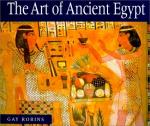|
This section contains 926 words (approx. 4 pages at 300 words per page) |

|
Evidence. Personal piety is not uniformly attested throughout Egyptian history. Before the New Kingdom (circa 1539-1075 B.C.E.) it is rare to find a private person depicted on a stele worshiping a deity. Old Kingdom (circa 2675-2130 B.C.E.) tomb biographies tended to stress the service the tomb owner had performed for the king, and any mention of his deeds for the gods is largely absent. During the First Intermediate Period (circa 2130- 1980 B.C.E.) scholars find the first indications of the belief in divinities who would intervene in the lives of individuals. Such references are few, however, and seem to be outside the norm of general religious experience. Beginning in the New Kingdom, however, the evidence indicates a much-greater emphasis on an individual's personal relationship with the gods, and the gods' actions on behalf of the individual. Evidence for...
|
This section contains 926 words (approx. 4 pages at 300 words per page) |

|




